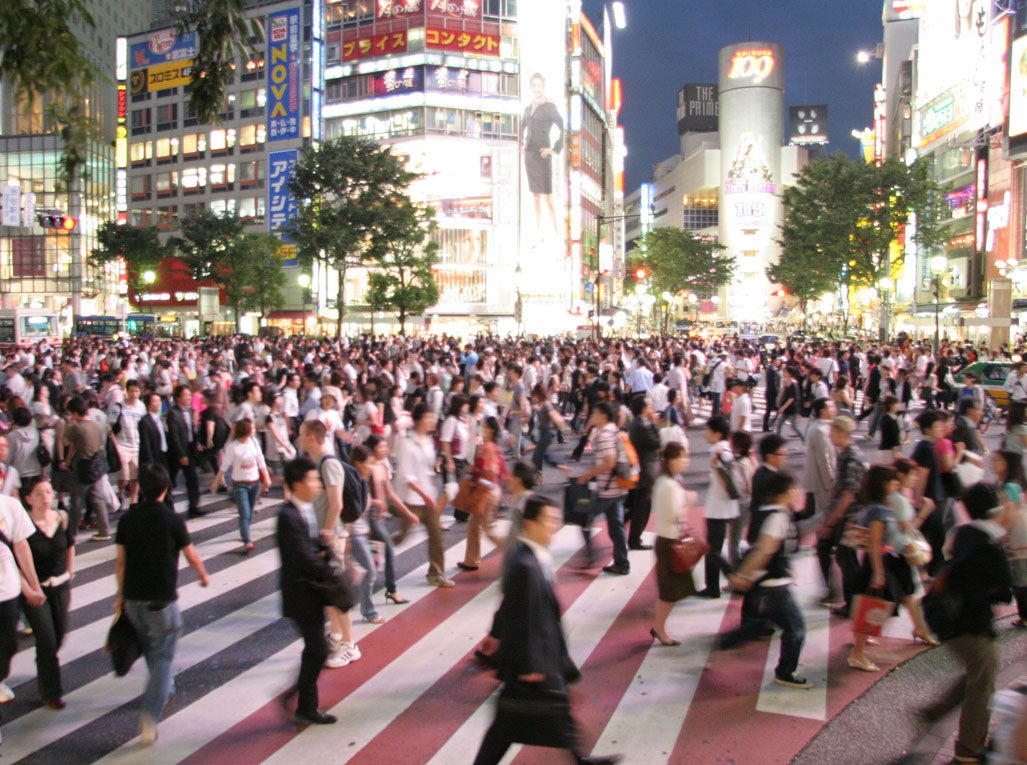Japan's population falls for the fourth straight year — to its lowest point since 2000
Government statistics show a decline of about a million people from the country's peak in 2008

Your support helps us to tell the story
From reproductive rights to climate change to Big Tech, The Independent is on the ground when the story is developing. Whether it's investigating the financials of Elon Musk's pro-Trump PAC or producing our latest documentary, 'The A Word', which shines a light on the American women fighting for reproductive rights, we know how important it is to parse out the facts from the messaging.
At such a critical moment in US history, we need reporters on the ground. Your donation allows us to keep sending journalists to speak to both sides of the story.
The Independent is trusted by Americans across the entire political spectrum. And unlike many other quality news outlets, we choose not to lock Americans out of our reporting and analysis with paywalls. We believe quality journalism should be available to everyone, paid for by those who can afford it.
Your support makes all the difference.Marking another chapter in the curious case of Japan's population, newly released government figures have revealed the country's numbers fell for the fourth straight year.
The decline of 215,000 people between October 2013 and 2014 - which is 0.17 per cent - has brought the population down to 127.083 million, its lowest point in 15 years.
This means there were more than a million fewer Japanese residents in 2014 than there were at the country's population peak in 2008, according to statistics from the Internal Affairs and Communication Ministry.
With a consistently low birth-rate, Japan is witnessing an unprecedented aging of its population, and official projections foresee a further fall of 40 million by 2060.
The annual population survey includes foreigners who have lived in the country for more than three months, and so the stats appear even more stark when you look just at Japanese nationals, the number of which fell by 273,000.
Japan remains the 10th most populated country in the world, but Mexico is growing fast and looks set to overtake in the coming years.
A government official told the Japan Times: "With more people choosing life without marriage and children, the way of living has become more diverse and immigrants are few in Japan."
"So, it would be difficult to change the situation rapidly."
Senior citizens now account for 26 per cent of the people, more than at any point since records began in 1950. Around an eighth of the population is 75 or over, and those older than 65 now outnumber under-15s by two-to-one.
The population fell in 40 of the country's regions, but the number of people in Tokyo grew considerably — 0.68 per cent.
It seems people are flocking to the capital and the surrounding towns, which represent more than 28 per cent of the country's total.
Prime Minister Abe is trying encourage a better distributed population by revitalising rural economies.
The government believes if the country's population continues to shrink it could harm economic growth.
Subscribe to Independent Premium to bookmark this article
Want to bookmark your favourite articles and stories to read or reference later? Start your Independent Premium subscription today.
Join our commenting forum
Join thought-provoking conversations, follow other Independent readers and see their replies
Comments